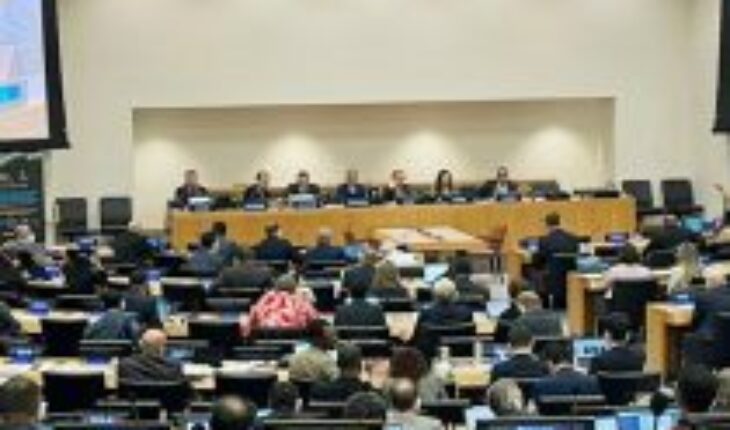For three days, the United Nations Regional Committee on Global Geospatial Information Management for the Americas (UN-GGIM: Americas) will meet in Santiago, a key instance to maximize the economic, social and environmental benefits derived from geospatial data. More than 20 countries in the region have already been confirmed at the event.
In the digital age, using a cell phone, a computer or connecting to the internet generates a large amount of data, to which are added those of a personal nature in digital behavior. It is important to know that each of these is fundamental for decision making, and even more so when they are located on a map.
That’s called “geospatial information,” which has multiple uses. It was thanks to these data that SERVEL had tools to adjust the registry and assign voters to voting centers as close as possible to their homes, facilitating participation in this electoral process.
In economic matters, the maps make it possible to determine in which sectors less investment is made, in order to find ways to encourage it; and in citizen security, it contributes to the geolocation of crimes, so that it can be decided where more patrols, controls, police contingent, and even luminaries are required to neutralize this problem.
At the international level, geospatial technologies have improved transport routes, with travel savings of about 12 per cent on average; sales of digital maps and related services have exceeded more than $1 trillion in annual sales; and has contributed to about a 20% reduction in emergency response times.
In our country, the work of this information is carried out by the IDE Chile (Geospatial Data Infrastructure of Chile), whose executive secretary is based in the Ministry of National Assets. This body coordinates a network of public institutions to make available to authorities and the community, updated and reliable information that is useful for public and private management.
Since December 2021, FDI Chile chairs the United Nations Regional Committee on Global Geospatial Information Management for the Americas (UN-GGIM: Americas). Among the member countries of this committee are Argentina, Brazil, Canada, Colombia, the United States, Mexico, Panama, Paraguay and Uruguay.
The call at the end of November will discuss the most relevant aspects and challenges for the governments of the region in terms of geospatial data, and implies a recognition of national leadership in this area, since for the first time this committee is headed by a South American country and is also host of this space.
Among those who have already confirmed their participation are the international delegations of Cuba, Colombia, the United States, Mexico, Ecuador, Canada, Paraguay, Panama, Costa Rica, Venezuela, Argentina, Brazil and Uruguay.
Follow us on





